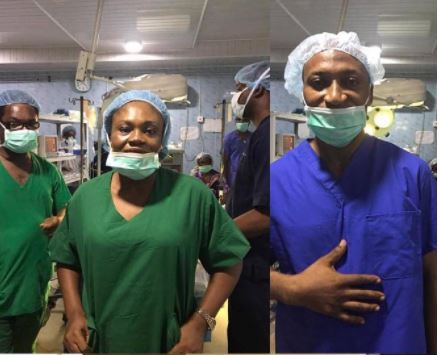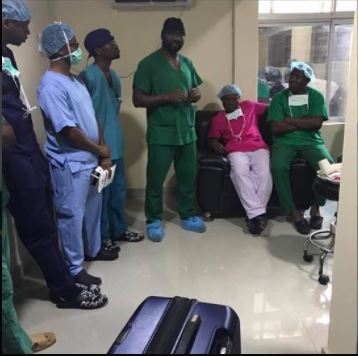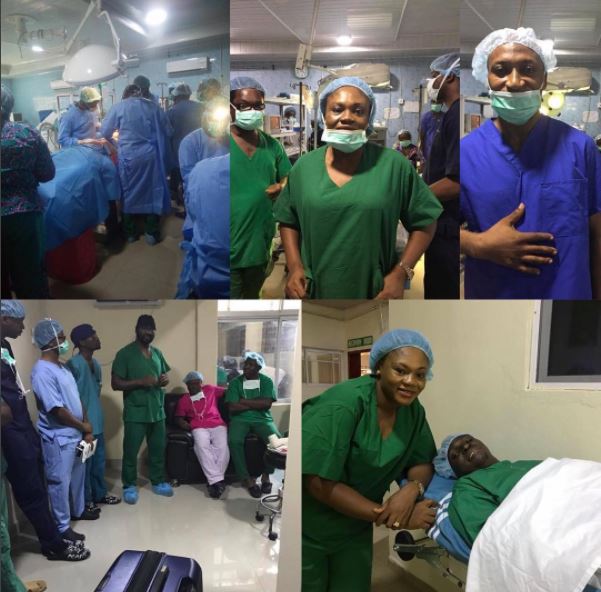Excited
doctors at the Federal Medical Centre (FMC), Umuahia, Abia State
couldn't hide their joy after performing their first successful kidney
transplants at the hospital.

Doctors at the Federal Medical Centre in Umuahia have successfully performed their first kidney tranplants
The Federal Medical Centre (FMC), Umuahia, Abia State has
successfully carried out its first kidney transplantation, according to a
report by Channels Television.
It was gathered that the kidney transplant which was carried out on
two patients was conducted free of charge. The surgery commenced on
Thursday, December 7 and was completed on Friday morning around 10:00
a.m.
This decision of the free surgery, according to the management of
the centre is aimed at offering kidney transplant services to improve
quality of life, minimise medical tourism as well as provide affordable
kidney transplantation in Nigeria.
The surgical procedure was carried out by team of surgeons led by
Dr Obi Ekwenna from University of Toledo Medical centre, USA and other
surgeons from FMC Umuahia. It lasted more than ten hour in between
procurement of kidney from the donor and actual transplanting for the
recipient.
Relatives of the beneficiaries who have been undergoing dialysis
expressed gratitude to the management for the gesture and expressed
optimism for its sustainability.
One of the beneficiaries, Orji Ogbonnaya, a 37-year-old man who has been going through dialysis for four years said, “this
is a great plan for people like us who cannot travel outside the
country to do the surgery, because they do not have the finances to go
outside the country, but right now, we have kidney transplant at our
doorstep and it is free for us as the beginners of the place, so I
appreciate it.”

According to the CMD, FMC Umuahia, Dr Abali Chuku , the decision to
offer kidney transplant free of charge for two patients is aimed at
bridging the gap in obtaining quality healthcare due to the financial
burden.
He said about 10 centers in Nigeria are providing kidney
transplantation but all the ten centers are outside the south-eastern
area. So, the Federal Medical Centre, Umuahia introduced the service
within in order to add value to the health sector.
‘’Now the incidence of this kidney diseases is about seven
percent of admitted patients. The alternative which is usually very
expensive is kidney transplantation and a lot of them cannot afford it
and it becomes a bit challenging for such patients and the dialysis cost
is also quite high.
‘’This kidney transplantation is a skill transfer session which
the Federal Medical Centre hopes to run for four years to enable the
centre to fully optimise the transfer of skills from the partnership
with the University of Toledo Medical Centre,” he said.

Dr Obi Ekwenna said the entire procedure was successful as a result of combined team effort.
“This is a team effort and that is what is required to have a
successful transplant. We want to be able to save the life of patients
who have kidney failure around this area and we target for that, it is
just me from United States and the rest of the surgeons here. They are
all very capable and obviously with some guidance we are able to do a
successful kidney transplant,” he said.

Speaking on the present condition, Ekwenna said both the donors and recipients are are currently doing well.
“The recipient is doing beautifully and the donor is moving
around, the donors are the heroes, they are amazing people that come
forward to save life and they will live a normal life,” he said.






















